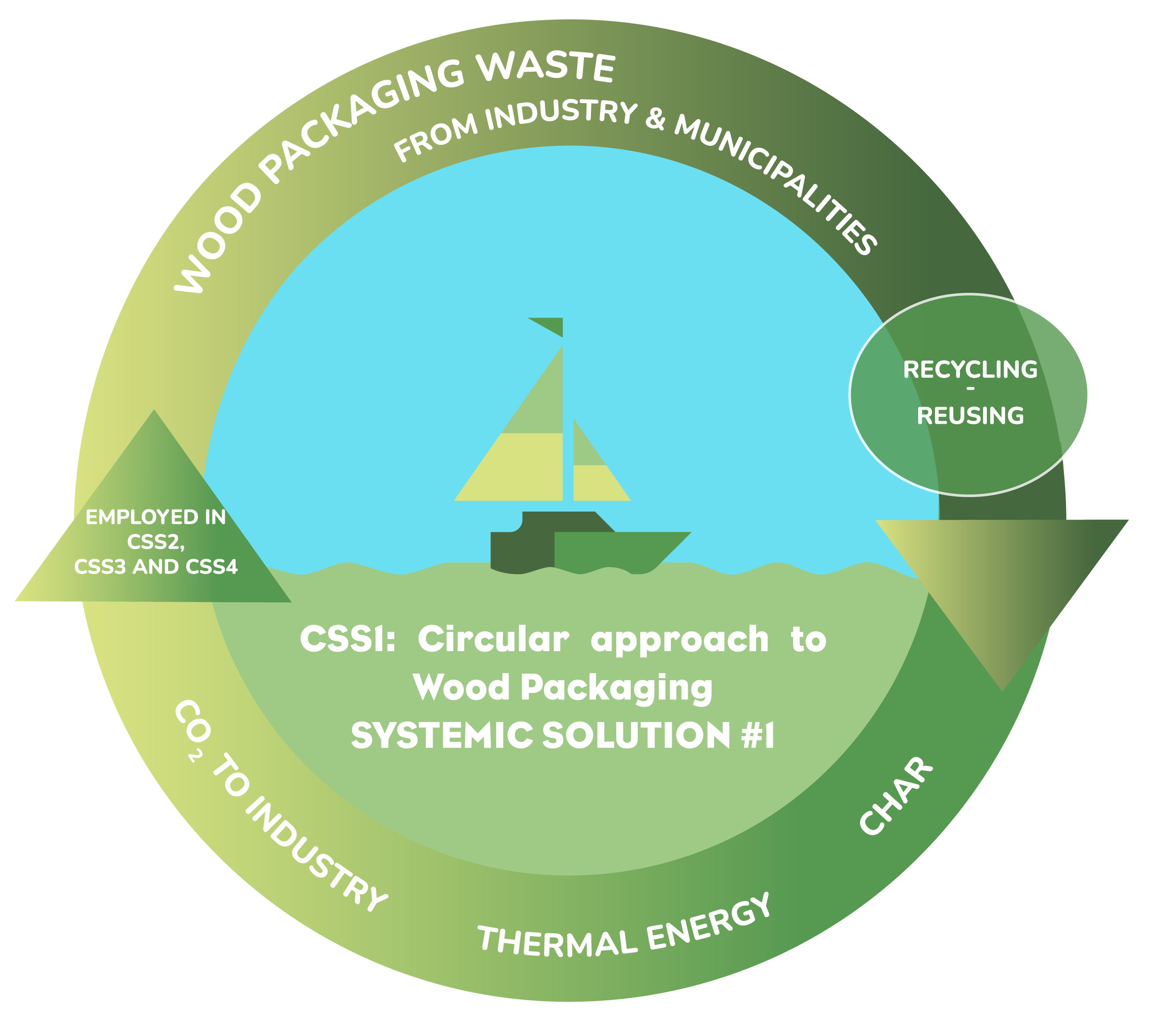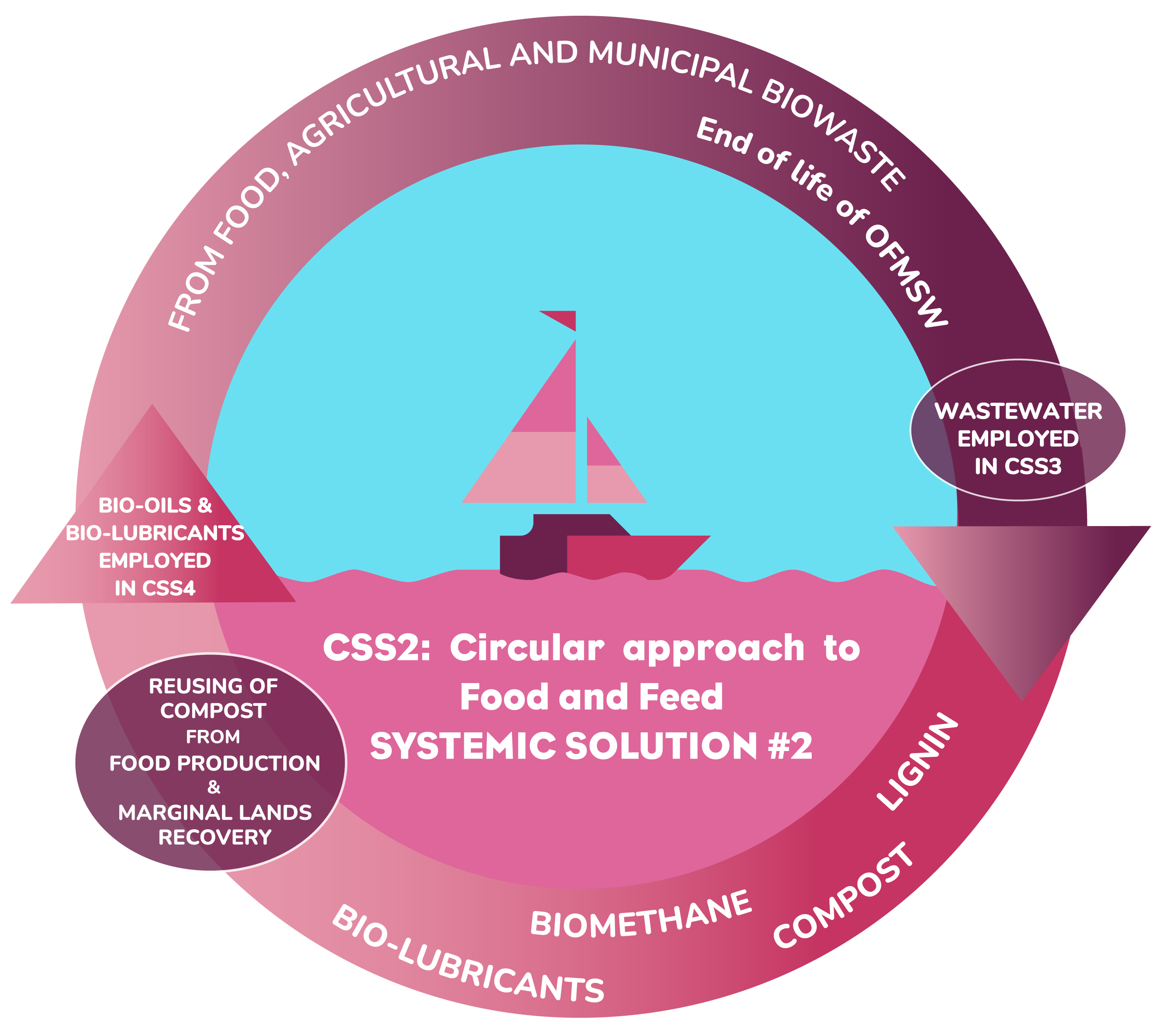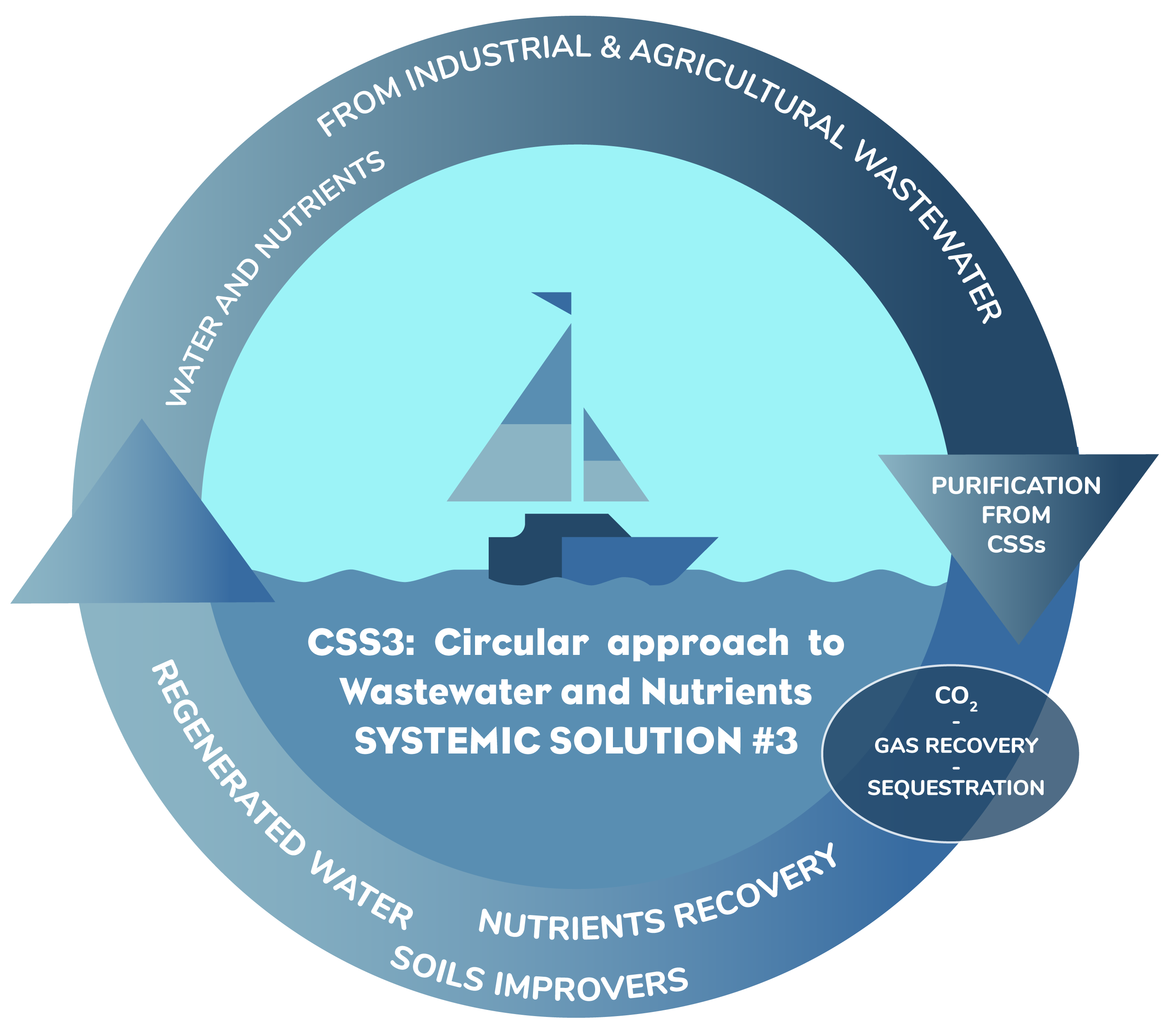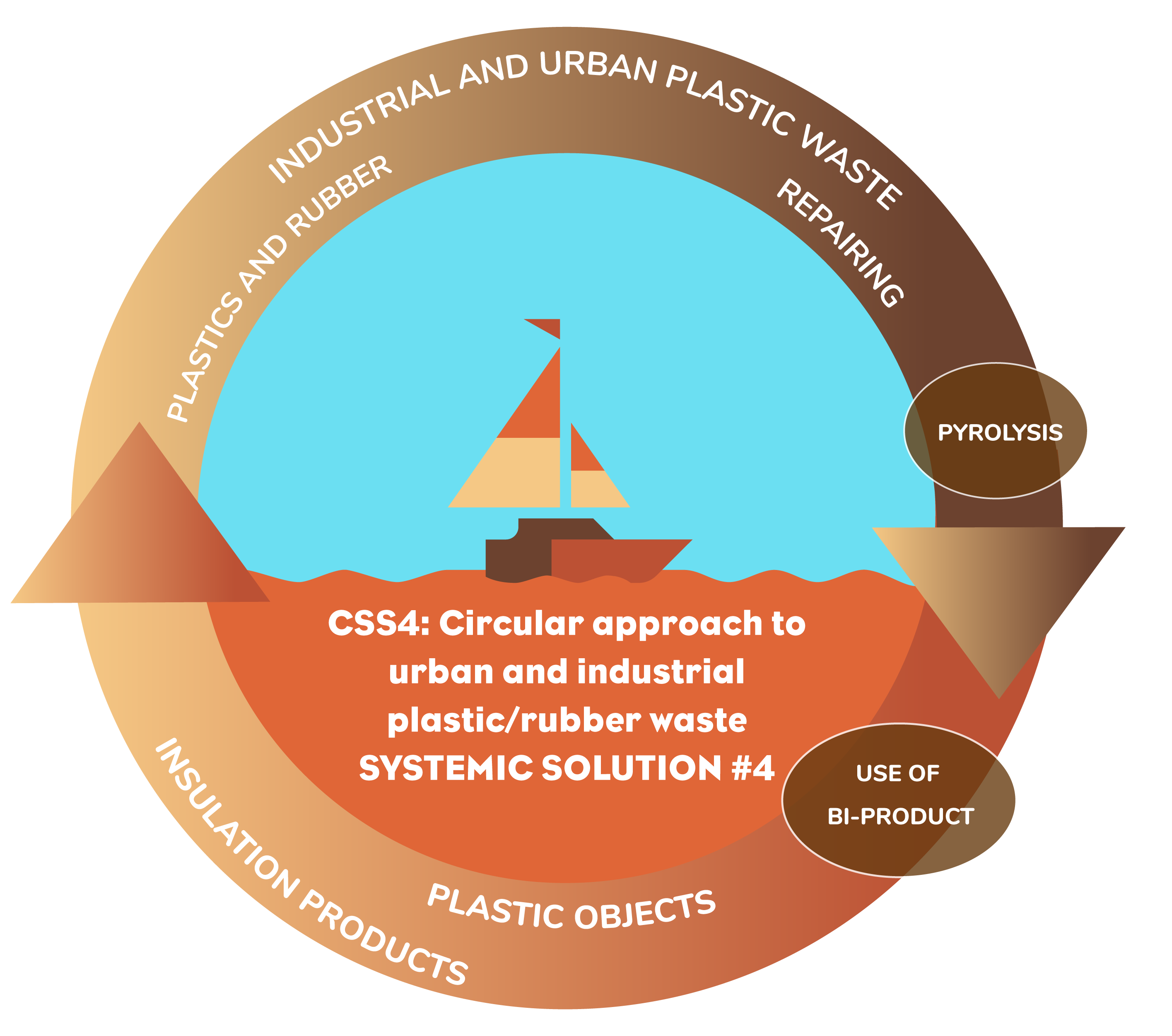Circular Systemic Solutions (CSS)
To ensure the green and just transition of the Polish Łódzkie Region towards decarbonization and territorial regeneration FRONTSH1P deploys four highly replicable, modular and scalable Circular Systemic Solutions (CSSs) for territorial regeneration based on a multi-stakeholder approach putting citizens needs at the centre of development. This systemic approach addresses four key strategic sectors targeted by the new EU CEAP that are linked with the decarbonisation of Europe, namely: Wood Packaging, Food and Feed, Water and Nutrients as well as Plastics and Rubber.

CSS1 WOOD PACKAGING
CSS1 focuses on creating circular solutions for wood packaging materials, such as pallets and crates. It aims to minimize waste, promote recycling and reuse of wood packaging, reducing the environmental impact of this sector. Its main objective is the development of a circular economy concept that begins with the valorisation of wood packaging waste through refurbishing, reusing, recycling, energy recovery, and material valorisation.



CSS2 FOOD & FEED
CSS2 addresses circular solutions for the food and feed industry from food, agricultural and municipal biowaste to circular bioproducts. It aims to reduce food waste, improve resource efficiency in food production, and find sustainable ways to use by-products and waste from this sector.

CSS3 WATER & NUTRIENTS
CSS3 focuses on circular approaches to water and nutrient management. It aims to develop sustainable methods for water treatment and nutrient recovery, reducing the environmental impact of water use and nutrient management. Its objective to establish a closed water cycle to maximize the reuse of wastewater, ensuring it undergoes thorough cleaning processes before being returned to the environment.



CSS4 PLASTIC & RUBBER WASTE
CSS4 deals with circular solutions for plastic and rubber waste. It aims to find ways to recycle and reuse plastic and rubber materials, reducing the pollution and environmental harm caused by these materials. Its objective is to encourage and implement a circular approach for industrial and urban plastic waste, transforming it into sustainable insulating materials that enhance energy efficiency at cost-effective rates. Integrate community-driven repair programs to regenerate small household appliances using 3D printing technology. Decarbonize foaming processes by utilizing neutral CO2 instead of fossil-based blowing agents.

